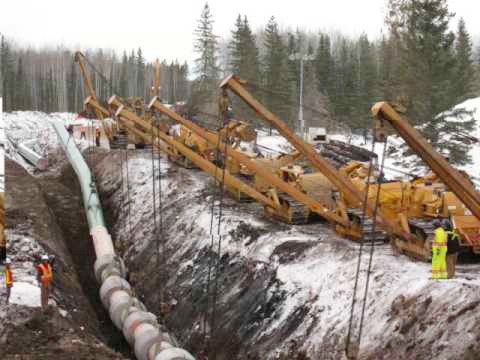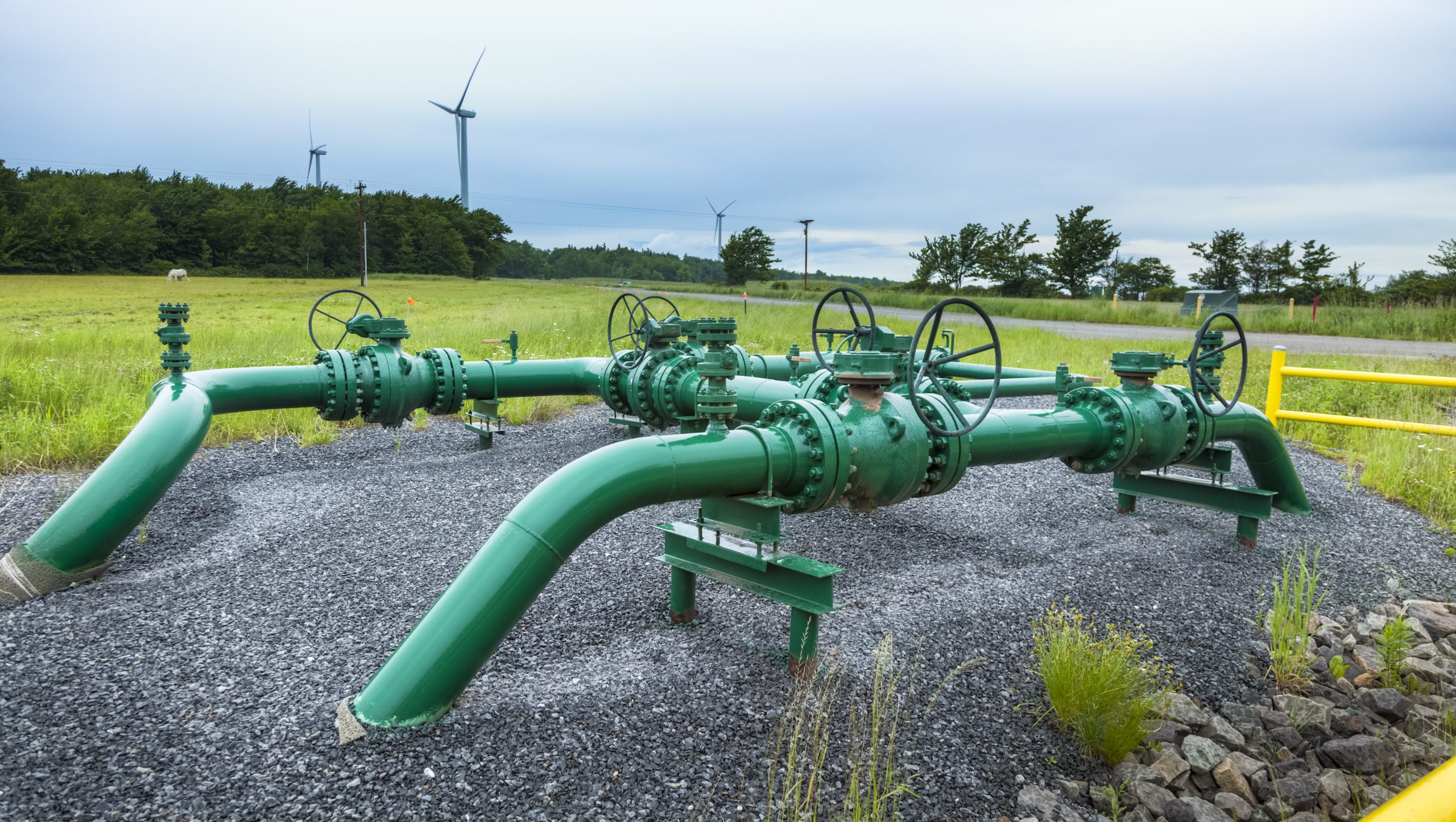Pipeline Construction Services Best Practices for Risk Management
The Necessary Guide to Comprehending Pipeline Construction Providers and Their Relevance
Pipeline Construction solutions are fundamental to the transportation of necessary resources such as water, gas, and oil. These solutions involve meticulous preparation and implementation, adhering to stringent safety and ecological requirements. As the industry adapts to modern-day obstacles, comprehending its effects and elements becomes significantly crucial. What elements add to the expanding importance of these services in today's economic situation? The adhering to areas will discover these crucial aspects.
Review of Pipeline Construction Providers
Pipeline Construction services encompass a variety of tasks important for the installment and upkeep of pipelines utilized to carry various materials, including gas, water, and oil. These services are essential for guaranteeing the secure and efficient motion of sources from one place to an additional. The process commonly begins with detailed planning and style, which thinks about regulative needs, environmental factors to consider, and logistical challenges.
Excavation and grading of the land are conducted to prepare the site for Pipeline installment once planning is total. This is followed by the actual laying of the pipes, which includes welding or signing up with areas together to produce a constant circulation course. After installation, extensive testing is executed to assure integrity and safety. Maintenance solutions are additionally given to address any problems that may develop with time. Overall, Pipeline Construction services play a critical function in sustaining facilities for power and water circulation.
Trick Elements of Pipeline Construction
An effective Pipeline Construction task depends on numerous vital components that guarantee the effective and safe installation of the Pipeline system. Detailed website analyses are important, as they recognize the environmental and geographical variables that may impact Construction. Next, the choice of ideal materials, such as pipelines and fittings, is crucial for protecting resilience and compatibility with the transferred compounds.
Progressed Construction techniques, consisting of trenchless technology and directional boring, enhance performance and lessen ecological impact. Efficient task administration is an additional vital component, collaborating labor, devices, and timelines to meet job objectives.
Additionally, communication amongst stakeholders, including designers, specialists, and regional authorities, assurances placement on task requirements and demands. Extensive quality control measures throughout the Construction procedure make sure compliance with market criteria and optimize the Pipeline's operational life expectancy. Jointly, these parts create the foundation of an effective Pipeline Construction project.
Safety Criteria and Regulations in Pipeline Construction

Governing bodies, such as the Occupational Safety and Health And Wellness Administration (OSHA) and the Pipeline and Hazardous Materials Security Management (PHMSA), set forth specific requirements that control Construction methods. These consist of methods for tools use, worker training, and emergency situation response treatments. By executing these criteria, Construction business not just secure their employees however additionally protected public trust. Ultimately, rigorous precaution add to the long-term success of Pipeline jobs, ensuring they fulfill both functional and ecological assumptions.
Environmental Factors To Consider in Pipeline Projects

Environmental considerations are integral to the planning and implementation of Pipeline tasks. These jobs need to examine prospective effect on ecosystems, water sources, and regional wildlife. Carrying out detailed environmental influence assessments (EIAs) is important, allowing stakeholders to identify and mitigate risks before Construction begins.
Safeguarding sensitive locations, such as environments and marshes, typically calls for executing particular layout functions or different directing to minimize disturbance. In addition, Pipeline drivers are entrusted with establishing methods for stopping spills and leaks, which can have damaging impacts on the setting.
Interaction with regional communities is necessary, as public issues can result in project alterations that enhance environmental protection. Compliance with laws set by ecological firms guarantees that tasks satisfy sustainability standards, promoting an equilibrium between facilities needs and eco-friendly conservation. Ultimately, addressing environmental factors to consider not just safeguards nature but additionally advertises neighborhood trust fund and job practicality.
The Role of Technology in Pipeline Construction
Innovation plays a necessary duty in modern-day Pipeline Construction, boosting efficiency and accuracy. Advanced evaluating techniques enable accurate preparation and execution, lessening environmental impact and project delays. Furthermore, the integration of automation and robotics streamlines procedures, decreasing labor costs and improving safety on Construction sites.
Advanced Checking Strategies
Advanced surveying techniques play a vital function in the effective implementation of Pipeline Construction jobs. These techniques utilize cutting-edge modern technology to ensure specific mapping and analysis of the surface where pipelines will certainly be installed. Methods such as Geographic Info Systems (GIS), LiDAR (Light Detection and Ranging), and 3D modeling make it possible for designers to examine the landscape and imagine, identifying possible challenges and ecological problems. By utilizing these advanced tools, groups can boost accuracy ready and positioning, considerably decreasing the threat of mistakes throughout Construction. Additionally, real-time information collection allows for prompt adjustments and educated decision-making throughout the project lifecycle. Ultimately, these checking technologies contribute to enhanced efficiency, safety and security, and sustainability in Pipeline Construction initiatives.
Automation and Robotics

Economic Impact of Pipeline Facilities
Pipeline facilities plays a necessary role in shaping regional economic climates and assisting in trade. By offering a dependable methods of transporting oil, gas, and various other assets, pipes lower transport prices and improve supply chain effectiveness. This framework brings in investment, stimulates task creation, and promotes financial growth in bordering areas.
Furthermore, the Construction and maintenance of pipelines add considerably to local economic climates, creating countless employment possibilities in different industries, from engineering to labor. The influx of tasks typically causes increased costs in neighborhood companies, better strengthening financial task.
Furthermore, pipes enhance energy security by ensuring a steady supply of resources, which is crucial for household needs and commercial operations. As areas come to be adjoined via Pipeline networks, they access to wider markets, boosting competitiveness and financial durability. As a result, the economic effect of Pipeline framework is complex, affecting both prompt neighborhood economic situations and broader local growth.
Future Fads in Pipeline Construction Solutions
The future of Pipeline Construction solutions is developing in response to technological innovations, regulative modifications, and growing environmental factors to consider. Advancements such as drones and robotics are enhancing examination and upkeep procedures, enhancing security and efficiency. Automation is positioned to decrease labor prices and boost precision in Construction procedures. Additionally, the boosting focus on sustainability is triggering companies to embrace environmentally friendly materials and techniques, straightening with international initiatives to minimize carbon impacts.
Regulatory frameworks are likewise adjusting to address environmental effects, pressing for better openness and accountability in Pipeline projects. The combination of wise innovations, including real-time monitoring systems, is anticipated to enhance the integrity and efficiency of Pipeline networks. As energy demands change toward eco-friendly resources, Pipeline Construction services will likely see an increase in jobs associated to biofuels and hydrogen transport. Generally, these fads show a transformative period for the Pipeline look here Construction industry, concentrated on innovation and sustainability.
Often Asked Questions
What Kinds of Pipelines Are Commonly Built?
Various kinds of pipes are commonly created, consisting of oil, gas, sewer, and water pipelines - Pipeline Construction Services. Each serves distinct functions, promoting the transport of vital resources throughout areas while sticking to safety and security and ecological policies
How much time Does a Normal Pipeline Job Take?
The period of a typical Pipeline project varies significantly, commonly varying from several months to a couple of years. Variables influencing this timeline include project complexity, governing approvals, and environmental factors to consider that must be resolved.
That Controls Pipeline Construction Business?
Pipeline Construction firms are regulated by different government, state, and neighborhood agencies, consisting of the Pipeline and Hazardous Products Safety Administration (PHMSA) and state public energy commissions, making certain conformity with safety and security and environmental criteria throughout the Construction process.
What Prevail Products Used in Pipeline Construction?
Typical materials utilized in Pipeline Construction include pvc, polyethylene, and steel. Each material provides unique advantages such as adaptability, toughness, and resistance to deterioration, making them appropriate for numerous applications in delivering gases and liquids.

How Are Pipeline Construction Costs Approximated?
Pipeline Construction expenses are estimated by assessing aspects such as material costs, labor rates, task complexity, environmental considerations, and regulative demands (Pipeline Construction Services). Accurate price estimation guarantees effective budgeting and project preparation throughout the Construction procedure
Pipeline Construction solutions encompass a variety of activities vital for the setup and upkeep of pipelines utilized to transfer different compounds, consisting of oil, gas, and water. A successful Pipeline Construction job depends on numerous vital components that guarantee the risk-free and effective installation of the Pipeline system. Advanced checking strategies play a vital role in the successful execution of Pipeline Construction tasks. Numerous types of pipelines are frequently built, including oil, gas, sewer, and water pipelines. Pipeline Construction expenses are approximated by analyzing variables such as material costs, labor rates, job complexity, ecological factors to consider, and governing demands.